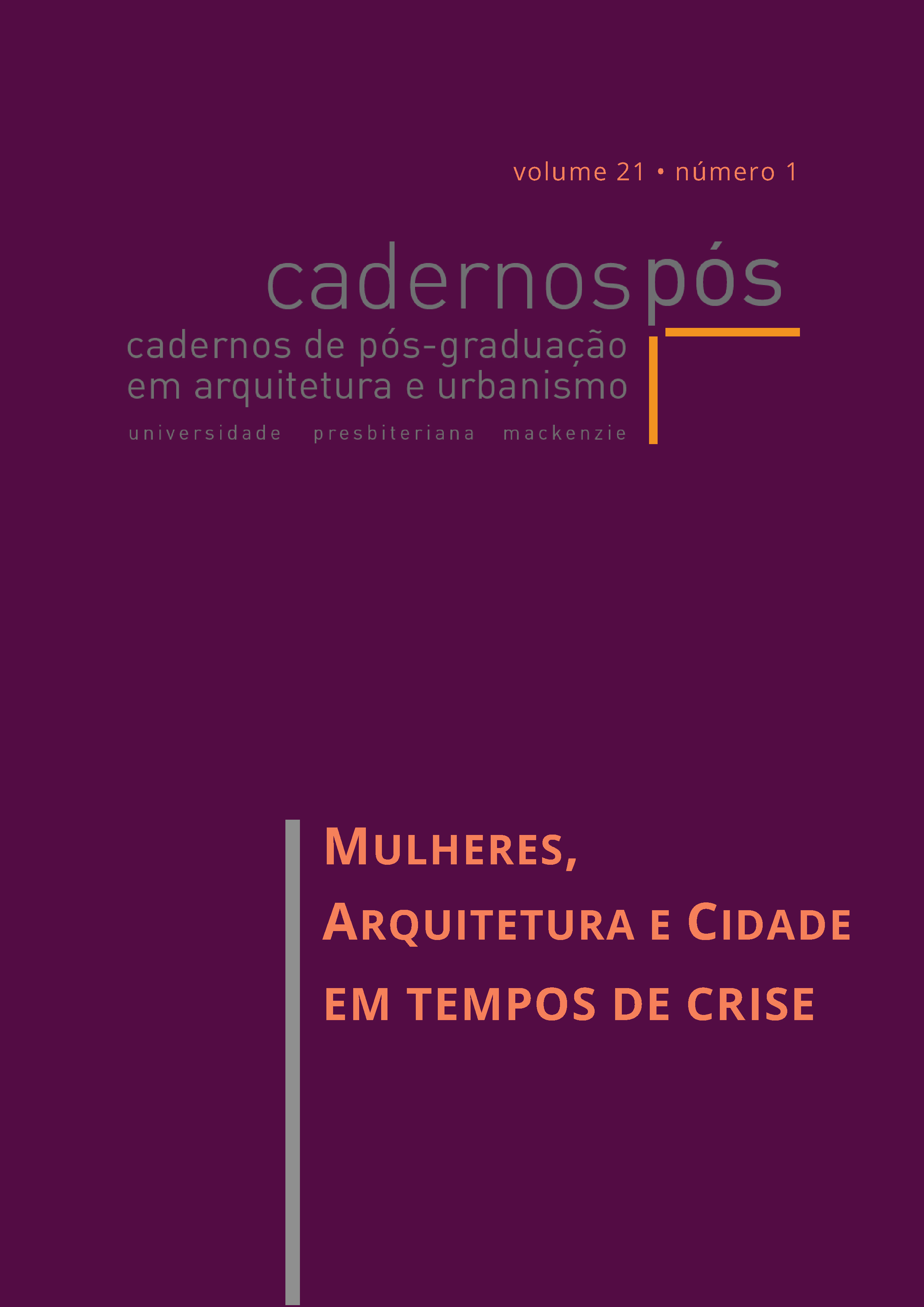The Contribution of Spatial and Intersecctional Analysis of Gender Inequalities in the City of Sao Paulo
DOI:
https://doi.org/10.5935/cadernospos.v21n1p94-113Keywords:
Intersecionality; Gender; Geospatial data processing; Segregation; Inequality.Abstract
In Brazil, indicators of gender inequality are often shown to be unfavorable to women with regard to income, time in reproductive work, sexual division of productive labor etc. In examining the 17 UN Sustainable Development Goals (SDGs), including SDG 5, class and race are little explored. When these indicators are compared and spacialized with others, such as labor (formal and informal); urban infrastructure (travel time, housing conditions etc.); violence (racism, feminicide and other violence against women); as well as even COVID-19 indicators, it is possible to assess that location variable is crucial in identifying how and where the women are most affected by gender inequalities. Spatial analysis can contribute to the approach of the literature on intersectionality as it identifies that gender inequalities are more or less intense and concentrated throughout the territory when we overlap other social vulnerabilities. The goal of this approach is to provide support for more inclusive and spatially accurate public policies. The latest municipal, state and federal spatializable databases were used.
Downloads
References
ADICHIE, C. N. Para educar crianças feministas. São Paulo: Companhia das Letras, 2017.
BÓGUS, L.; PASTERNAK, S. (org.). São Paulo: transformações da ordem urbana. 1. ed. Rio de Janeiro: Letra Capital, 2015.
CAMARGO, C.P.F. et al. São Paulo, 1975: crescimento e pobreza. São Paulo: Loyola, 1976.
COLLINS, P. H. Pensamento feminista negro: conhecimento, consciência e a política do empoderamento. São Paulo: Boitempo, 2019.
DAVIS, A. Mulheres, raça e classe. São Paulo: Boitempo, 2016.
ESQUIVEL, V. Power and the Sustainable Development Goals: a feminist analysis. Gender & Development, v. 24, n. 1, p. 9-23, 2016. DOI: 10.1080/13552074.2016.1147872.
FEDERICI, S. O ponto zero da revolução: trabalho doméstico, reprodução e luta feminista. São Paulo: Elefante, 2019.
FRANCO, M.; FRANCISCO, M.; TAVARES, R. Nossos corpos, nossa cor, nossa cidade. Os impactos causados pelas interveções decorrentes dos grandes projetos de urbanização no Rio de Janeiro. In: IBDU. Direito à Cidade: uma outra visão de gênero. São Paulo: IBDU, 2017.
GONZALEZ, L. O Golpe de 64, o novo modelo econômico e a população negra. In: GONZALEZ, L.; HASENBALG, C. Lugar de negro. Rio de Janeiro: Marco Zero, 1982.
JESUS, C.M. Quarto de Despejo. São Paulo: Ática, 1958.
HOOKS, B. Não sou eu uma mulher. Mulher negra e feminismo. São Paulo: Plataforma Gueto, 2014.
MARQUES, E. A Metrópole de São Paulo no início do século XXI. Revista USP, jul. 2014.
NERY, M. B.; SOUZA, A. A. L.; ADORNO, S. Os padrões urbano-demográficos da capital paulista. Revista de Estudos Avançados, São Paulo, v. 33, n. 97, set./out. 2019.
OXFAM. Tempo de cuidar. O trabalho de cuidado não remunerado e mal pago e a crise global de desigualdade. 2019. Disponível em: https://www.oxfam.org.br/justica-social-e-economica/forumeconomico-de-davos/tempo-de-cuidar. Acesso em: 22 set. 2020.
PASTERNAK, S. Cidades dos anéis. Cadernos de Pesquisa do LAP, São Paulo, n. 28, p.1-62, 2002.
RIBEIRO, D. O que é lugar de fala? São Paulo: Letramento, 2017.
SAFFIOTI, H. Do artesanal ao industrial: a exploração da mulher. São Paulo: Hucitec, 1981.
STRUCKMANN, C. A postcolonial feminist critique of the 2030 Agenda for Sustainable Development: a South African application. 2017. Tese (Doutorado em Ciências Sociais) – Stellenbosch University, Stellenbosch, 2017.
Downloads
Published
How to Cite
Issue
Section
License
Authors who publish in this journal agree to the following terms:
a) Authors retain the copyright and grant the journal the right of first publication, with the Project simultaneously licensed under the Creative Commons Attribution License that allows the sharing of the Project with recognition of the authorship and initial publication in this journal.
b) Authors are authorized to assume additional contracts separately for the non-exclusive distribution of the version of the Project published in this journal (e.g., publishing in an institutional repository or as a book chapter), indicating that it was originally published in this journal, with a link to the article.








 Todo o conteúdo de Cadernos de Pós-Graduação em Arquitetura e Urbanismo está licenciado sob
Todo o conteúdo de Cadernos de Pós-Graduação em Arquitetura e Urbanismo está licenciado sob 